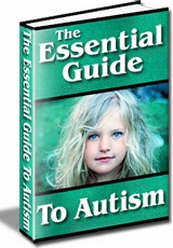
Music therapy for treating autism has been showing great
progress in recent years. Many parents have discovered that successful use of
music therapy for autism results in a notable change in an autistic child's
temperament and general ability to learn. For those who are autistic, music is
readily understood, but speech is often too complex, or even goes unnoticed by
the autistic. Using music therapy for autism may work by circumventing the
autistic child's speech deficiencies in order to communicate directly with the
part of the mind used for music. If you have an autistic child and haven't tried
music therapy for treating autism, you may want to look into what music can do
to help your child.
Music therapy is more than just playing music for an
autistic child. Music therapy for autism involves using a receptive part of the
mind to communicate with the mind, rather than simply focusing on an unreceptive
part of the mind. For normal children, various forms of speech are the receptive
part of the mind for communication, so we teach them and interact with them
using speech. So it only makes sense that the autistic mind, being receptive to
music, should be communicated with through music.
You can take things a step further than just music
therapy for autism by adding in other educational elements with the music. You
can play games centered around music to help your autistic child improve social
interaction. You can attempt to make eye contact a central part of singing and
instrument playing.
You should take advantage of the music therapy for
autism to also teach speech skills. Make speech a part of music. The autistic
child will love music, but typically will struggle with speaking and listening.
Singing words and clapping to rhythm can help add emphasis to speech that is
normally lacking when an autistic child speaks. This may help to make speech a
more meaningful part of communication for the autistic child.
When you begin music therapy for treating autism, you
may be surprised to find out just how gifted your autistic child is with music.
Some autistic children have special musical skills that are rare in ordinary
people. Perfect pitch is found at much higher rates in autistic children than in
normal children. Often an autistic child will pick up a musical instrument very
quickly. Even those autistic children without extraordinary skills in music tend
to learn things related to music much more quickly in relationship to how
quickly they learn other things. The key to making successful use of music
therapy for autism is to link the autistic child's strong perception of music to
other areas of the autistic child's life and education.